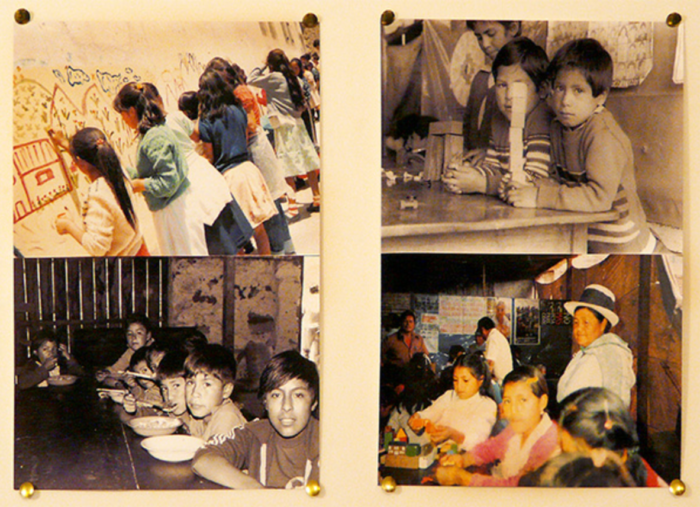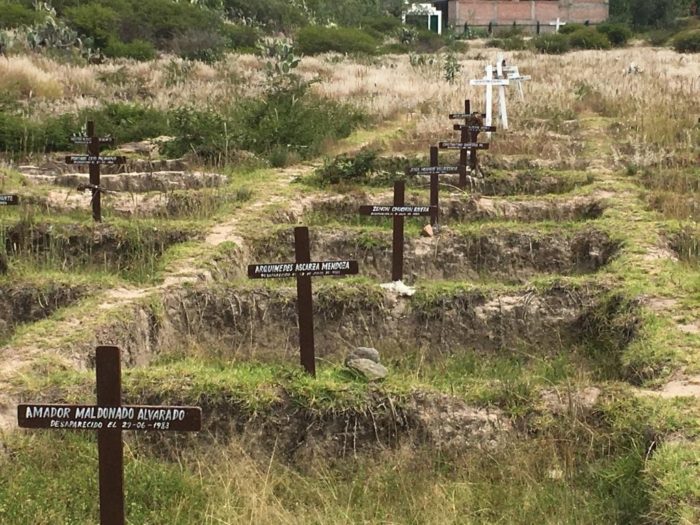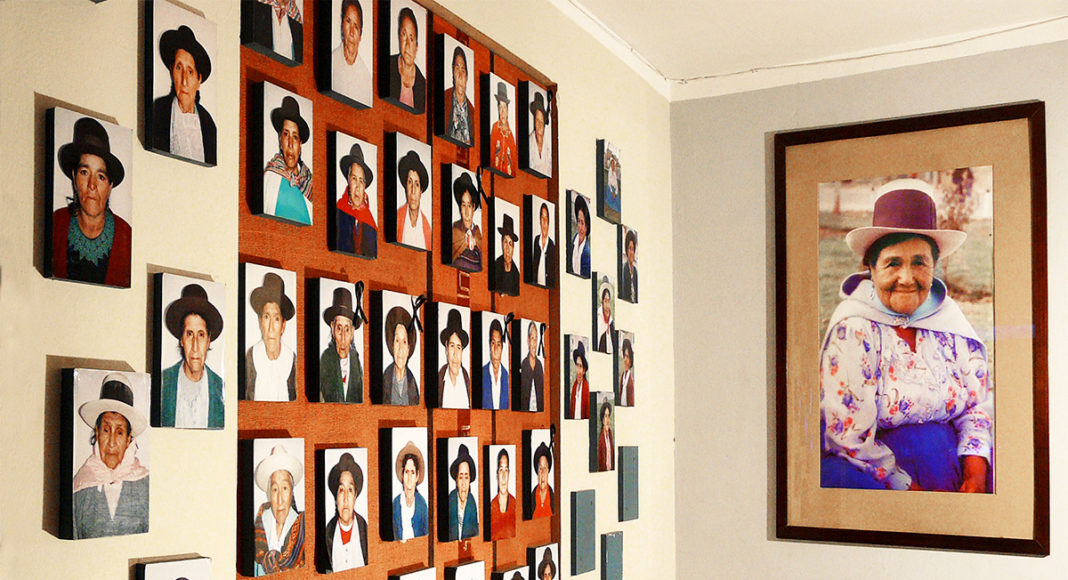As part of our ongoing collaborative Women Resisting Violence project in partnership between LAB and King’s College London, we are spotlighting Latin American grassroots campaigns and organisations that counter violence against women and girls. Read on to learn about ANFASEP.
Organisations | ANFASEP – National Association of Family members of Kidnapped, Detained and Disappeared in Peru
in Ayacucho, dignity has a woman’s face
Peru experienced a violent internal armed conflict between 1980 and 2000. The violence started when Shining Path, the ‘revolutionary communist party of Peru’, attacked a polling station in highland Ayacucho at the first democratic elections held since 1963. Shinig Path (Sendero Luminoso) terrorised the countryside, and later the cities. In 1982 the government declared a state of emergency, and the military added to the violence with an indiscriminate counter-insurgency focused on, initially, the Andean indigenous population. The Peruvian Truth and Reconciliation Commission (2001-2003) estimates that 69,280 people died and disappeared in this period, of whom 80% were Quechua speaking Andean young men. Women also suffered tremendously, as witnesses, victims, and survivors of violence, and as family members of the tortured and those disappeared.
In 1983, three women looking for their disappeared family members created the Asociación Nacional de Familiares de Secuestrados, Detenidos y Desaparecido del Perú – The National Association of Family members of Kidnapped, Detained and Disappeared in Peru. These three women, Angélica Mendoza de Ascarza, Teodosia Cuya Layme and Antonia Zaga Huaña, rapidly sought support from community members and local authorities to legitimise their search for their loved ones. Acting as ‘mothers’ of the disappeared, they became – and still are – untouchable icons of the search for justice in a dangerous context of politicised violence.
Acting as ‘mothers’ of the disappeared, they became – and still are – untouchable icons of the search for justice in a dangerous context of politicised violence.
Within a couple of months in that crucial year 1983, ANFASEP had grown from three to 800 members, uniting desperate women seeking and exchanging information, caring for left-behind children and the elderly. This work was not without danger; while their identity as mothers helped give them an aura of innocence and care, they had to defend themselves constantly against accusations from the military of being allies of terrorists, and against Shining Path from being collaborators of the state. Several colleagues did not make it to the end.

With the establishment of the Truth and Reconciliation Commission, ANFASEP’s struggle for justice gained further prominence and visibility. And after 35 years, in 2017, some form of justice was achieved: two military commanders were convicted of crimes against humanity in the notorious military base of Ayacucho known as Los Cabitos. At the base, hundreds of citizens were tortured, killed and disappeared. The main face of ANFASEP, Mama Angélica, who had fought so hard all those years to find her son Arquimedes, died two days after the ruling at the age of 78.
The work of ANFASEP is not finished: together with the younger generation, ‘los hijos de ANFASEP’, the organisation continues to fight for justice and recognition. They established the first Memory Museum of its kind in the country, the Museo de la Memoria, where they display photos, loved ones’ clothing recuperated from mass graves, art and artefacts that tell histories of violence and grief, and even a reconstructed torture chamber from Los Cabitos. The women also fight for the grounds where the military of Los Cabitos disposed of bodies, known as La Hoyada, to be destined as a memorial site.
The power of caring for the dead, the disappeared, and the neglected lies in the collective action this creates; this is a political power that foregrounds care over violence, accountability over impunity, and transparency over corruption. It is decisively feminist to prioritise care over violence and the collective over the individual. The activism of the women of ANFASEP contributes every day to a more peaceful and more accountable society, a society that remembers and honours the dead as well as the living.


Dr Jelke Boesten is a Professor in Gender and Development at King’s College London. Jelke’s current research focuses on transformative gender justice in post conflict societies –the idea that interventions to address gendered injustice, such as violence against women and girls, should aim to transform the social, political and economic relations that underpin the possibility of violence. Recently she finished a collaborative project exploring the transformative potential of memorial arts and symbolic reparation.
Main image: ANFASEP

